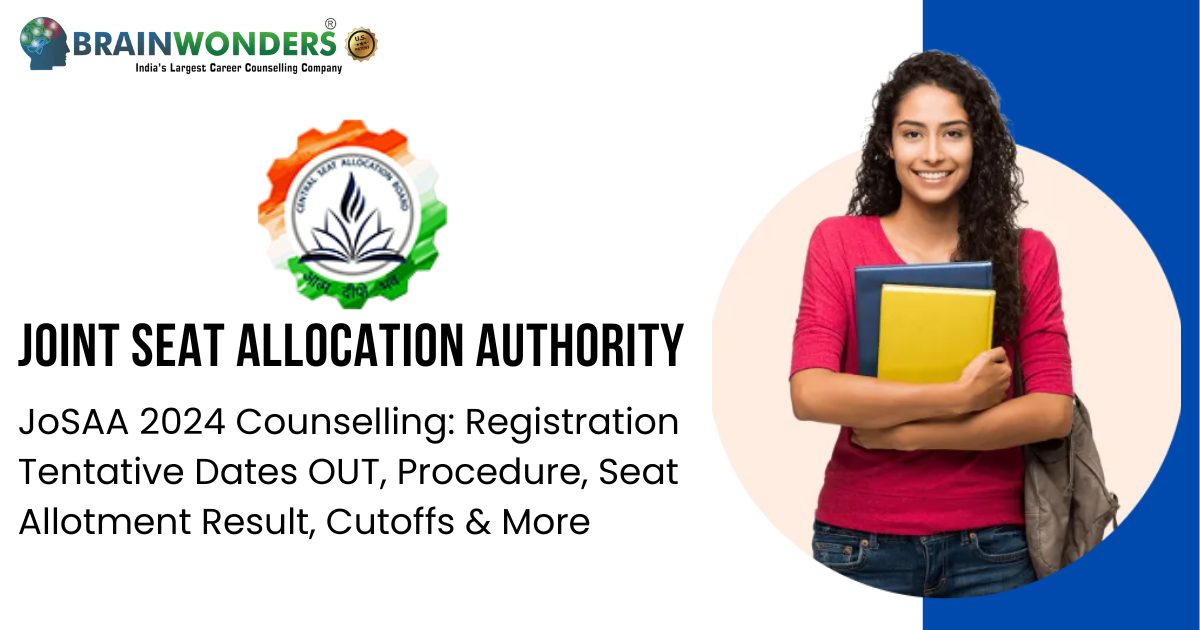

Are you aware which subjects and courses will bring you closer to your dream career?
Worry not, because the Brainwonders test and guidance will not only help you know it, but also follow it!
Blog
12 January,2024 | By Brainwonders

What makes us human is that we can really imagine things and feel emotions deeply. We all react to stuff in our own way, and certain situations can really mess with our heads. It's sad to think that back in the day, no one really paid attention to mental health. But now, with new tech and people being more aware, we're finally starting to deal with emotional problems. Career counselling is super important because it helps people face their problems head on so they can get better.
A counselor is who helps people work through their problems in regular sessions. The kind of help they give depends on what each person needs. Counseling, which is basically talking things out, lets you chat about your issues with someone trained to listen, in a calm and safe space. Everyone sees counseling a bit differently, but it's mostly about figuring out what's bugging you so you can deal with it or just get a better handle on what you're thinking. They talk with you in detail to figure out where your problems come from. Plus, they help you come up with plans to handle or beat those problems.
You can do counseling in different ways, so you can pick what works best for you. Here are some common options:
In-Person: You meet the counselor at their office. You set up a time and talk face-to-face. It's still a really common way to do counseling.
Group Counseling: A counselor leads a group of people who have similar issues. It lets you meet others who get what you're going through, which can be a great support. But if you want the counselor to really focus on you, in-person might be better.
Telephonic Sessions: Instead of going to an office, you talk to a counselor on the phone. It's good if you're busy because you can do it from home. It gives you a safe way to talk about your problems on the phone.
Online Counseling: You don't have to meet in person. You just email your counselor. This way, you can really think about what you want to say. Some people like it because it feels private. Online counseling is getting more popular because it's easy and private.
People usually go to counseling when they're dealing with tough stuff like mental health issues, intense emotions, or family problems. Counselling isn't a quick fix; it involves a careful and organized process. The whole thing is like a step-by-step guide, Let's check out the five main steps:
Building a Warm Relationship: If you reach out to a counselor about school, dating, work, or whatever, the counselor will try to make you comfortable and create a safe place by building rapport, so you would be able to talk about your problems.
Analysis: Figuring Things Out Next, the counselor tries to figure out what's really going on. They'll have you talk about your problems so they can understand things better. They'll pay close attention to how you talk and react to get a good idea of what's happening. Once they understand, you and the counselor will set a goal to work toward.
Setting the Goal: Deciding What to Do After really digging into the problems, the counselor will help you set a goal. With the problems clear, the counselor will work with you to figure out what you want to get out of counseling whether it's fixing the problem or learning to deal with it.
Plan of Action : Making a Game Plan With a goal pinned down, the counselor will make a plan just for you. Say you're scared of public speaking; the counselor might tell you to practice in the mirror. You'll try out this plan for a bit, and the counselor will keep an eye on how it's going. If things are getting better, great! If not, the plan might need a tweak.
Overcoming the Problem: The counselor will check in to see how your plan is going. If you're getting somewhere and feeling good, that means you've reached your goal. And that's the end of counseling!
Being a professional counsellor requires some core skills to handle client queries and drive the best results for them. The vital skills that a professional counsellor must have are as follows:
Effective Listening: A counsellor must be a patient listener who listens to the client's queries and can handle them intricately. With hearing the issues minutely, getting ahead with the next counselling steps is possible. Therefore, the counsellor has to be someone with good listening skills who fully listens to the client and their details.
A Good Communicator: A counsellor listens to his clients, analyses the problems, and develops a plan of action to achieve a target. It is indeed critical to be a very good communicator to help the person feel comfortable around him and ensure the client is confident while speaking about his problems. Developing a good relationship is very important.
Analysis: A successful counsellor is not only a good listener but a good analyzer, too, who uses his skills and expertise to reach the root of the problem and analyze it. Without analysis, the entire process is in vain as no goals can be set, and the client cannot undergo any action plan.
Worry not, because the Brainwonders test and guidance will not only help you know it, but also follow it!
.png)
